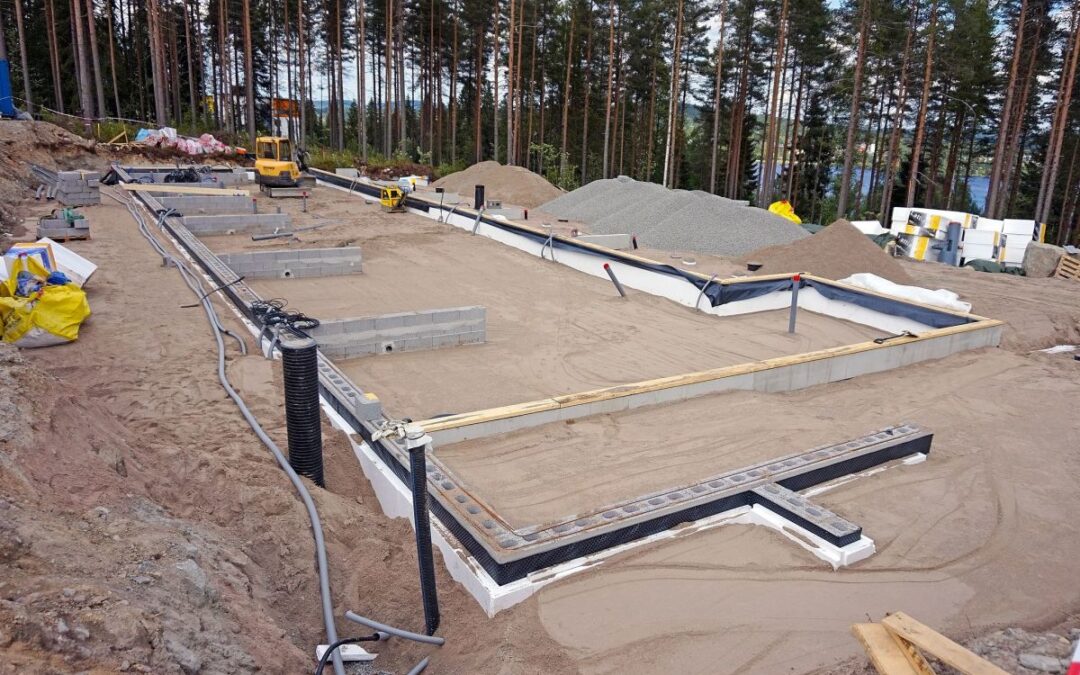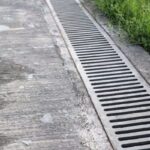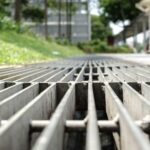The foundation of your home provides essential support and stability.
However, foundation cracks can compromise the structural integrity and lead to water damage issues.
As a homeowner, it’s crucial to take preventive measures to minimize the risk of foundation cracks and safeguard your home.
In this new article, we will discuss proactive steps you can take to prevent foundation cracks and reduce the potential for water damage.
How To Prevent Foundation Cracks And Minimize Risk Of Water Damage
1. Proper Drainage:
One of the primary causes of foundation cracks is excessive water around the foundation.
Ensure proper drainage around your home by maintaining gutters and downspouts.
Clean them regularly to prevent clogs and direct rainwater away from the foundation.
Consider installing downspout extensions to carry water further away from the house.
2. Maintain Consistent Moisture Levels:
Fluctuating moisture levels in the soil can cause it to expand and contract, exerting pressure on the foundation.
To maintain consistent moisture levels, water your lawn and garden evenly, avoiding over-watering or allowing puddles to form near the foundation.
Use a soaker hose or drip irrigation system to prevent excessive water accumulation.
3. Proper Grading:
Ensure that the ground around your home is properly graded away from the foundation.
Slope the soil away from the house to allow water to flow naturally and prevent it from pooling near the foundation walls.
Regularly inspect the grading and make adjustments as needed to maintain proper drainage.
Related topic: How to Identify Major House Settling Signs That Require Foundation Repair
4. Foundation Waterproofing:
Consider applying a waterproof coating or sealant to the exterior foundation walls.
These products create a barrier against moisture penetration, reducing the risk of cracks and subsequent water damage.
Consult with a professional waterproofing contractor to determine the most suitable product for your specific foundation type.
5. Control Soil Expansion:
Clay-rich soils are prone to expanding and exerting pressure on the foundation.
To mitigate this, ensure proper moisture control and consider using moisture-absorbing additives in the soil.
Additionally, avoid planting large trees or shrubs too close to the foundation, as their roots can cause soil expansion.
6. Maintain Consistent Indoor Humidity:
Fluctuating humidity levels within your home can affect the moisture content of the surrounding soil and potentially impact the foundation.
Use dehumidifiers in areas prone to high humidity, such as basements, to maintain consistent indoor humidity levels and minimize moisture-related issues.
7. Regular Foundation Inspections:
Perform regular visual inspections of your foundation, both indoors and outdoors. Look for any signs of cracks, shifts, or settlement.
Monitor doors and windows for sticking or misalignment, as these can indicate foundation movement.
If you notice any issues, consult with a professional foundation contractor in Northern Virginia for a thorough assessment and necessary repairs.
8. Professional Consultation:
Engage the services of a professional foundation contractor in Northern Virginia for periodic inspections and maintenance.
They have the expertise to identify potential problems early on and provide appropriate solutions to prevent foundation cracks and water damage.
Taking preventive measures to prevent foundation cracks is crucial for the long-term stability and protection of your home.
By implementing proper drainage, maintaining consistent moisture levels, ensuring proper grading, considering foundation waterproofing, controlling soil expansion, monitoring indoor humidity, conducting regular inspections, and seeking professional assistance, you can minimize the risk of foundation cracks and subsequent water damage.
Remember, prevention is key, and proactive measures can save you from costly repairs and ensure the longevity of your home’s foundation.






